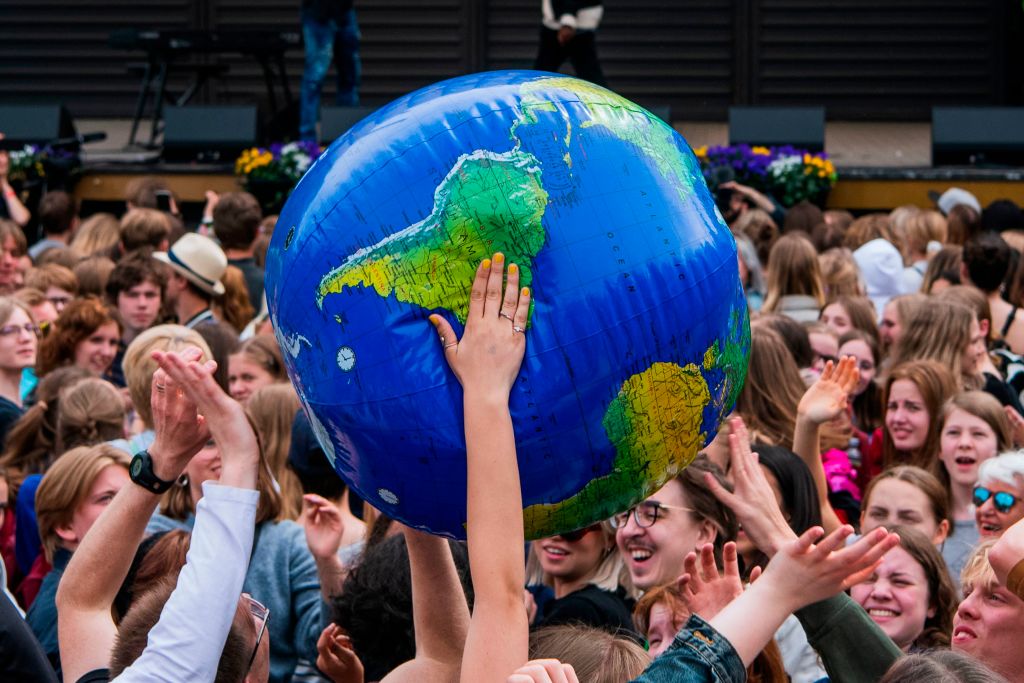
For more than a decade, Freedom House’s annual Freedom in the World report, which has been published by the Washington-based pro-democracy watchdog since 1973, has made for pretty grim reading. Since 2006, the report has chronicled a global “democratic recession,” in which the number of countries with diminishing political rights and civil liberties has outpaced those moving in the opposite direction.
But there may now be cause for cautious optimism. Of the 195 countries and 15 territories evaluated, 34 countries saw improvements in political rights and civil liberties, whereas 35 countries lost ground. That represents the narrowest margin recorded between countries that declined and improved since the downward trend began 17 years ago. The report concludes that it signals that “the world’s long freedom recession may be bottoming out.”
Global democracy on the rebound?
The reasons for this potential rebound are two-fold. The first is that many of the factors that made 2020 the worst year for democracy in recent history have since been reversed. “The pandemic had a pretty severe effect on civil liberties around the world, and we’re seeing the last remnants of that lift,” says Yana Gorokhovskaia, the report’s co-author and Freedom House’s research director for strategy and design, noting the impact that COVID-19 restrictions had on freedom of assembly in many countries. In authoritarian states such as China, where the crisis was exploited to further consolidate the state’s power, the restrictions were even more severe.
More from TIME
The second, perhaps more noteworthy, reason is to do with the fact that autocracies are no longer seen as quite as “infallible.” Throughout 2022, authoritarian regimes and illiberal leaders suffered a series of blows. That includes Vladimir Putin’s failure to achieve outright victory in Russia’s full-scale invasion of Ukraine and Jair Bolsonaro’s failure to win reelection in Brazil even after an attempted coup. Meanwhile, in China, rare demonstrations forced the government into a stunning reversal on its stringent zero-COVID policy; in Iran, women have emerged at the forefront of nationwide anti-regime protests. And in countries such as Venezuela and Afghanistan, governments have presided over humanitarian crises.
Read More: How the World Changed Since Russia’s Invasion of Ukraine
“As a form of government, [authoritarianism] relies on repression and coercion,” says Gorokhovskaia. But if 2022 has proven anything, it’s that even with this power, they are not unbeatable. “They actually do face some limits.”
The slow and gradual road to democratic recovery
While the narrowing of the gap between backsliding countries and improving countries is promising, Gorokhovskaia warns that democratic improvements in affected countries will take a long while. That’s because, on the whole, democratization tends to occur in smaller and more piecemeal ways than backsliding, which can happen rapidly.
Conversely, when decline does occur, it tends to be steep. Burkina Faso, for example, fell in Freedom House’s ranking by 23 points (from 53 to 30 out of 100) after it suffered two coups in a single year. Ukraine fell by 11 points (from 61 to 50), mostly as a result of Russian aggression in the country. Tunisia, once regarded as the only success story of the 2011 Arab uprisings, declined by eight points (from 64 to 56) over President Kais Saied’s efforts to consolidate power.
By comparison, the biggest recorded improvement this year was in Colombia, which rose by six points (from 64 to 70) following successful and competitive elections. “It takes countries a really long time to reinforce civil liberties and political rights,” says Gorokhovskaia.
The majority of the world lives in “Partly Free” or “Not Free” countries
For most of the global population, civil and political liberties continue to be out of arm’s reach. Just 20% of people around the world live in countries classed as “Free,” compared to 41% and 39% that live in “Partly Free” and “Not Free” countries, respectively.
For Freedom House, which uses 25 indicators to assess the health of a given country’s democracy, the most concerning decline over the past 17 years has been freedom of the media and freedom of personal expression. In 2022 alone, media freedom came under pressure in at least 157 countries and territories, or roughly 80% of the countries evaluated. “The countries that receive zero out of four on freedom of the media and freedom of private expression are the worst of the worst,” says Gorokhovskaia, citing countries such as Belarus, Eritrea, and Nicaragua. But attacks on the media and freedom of expression are also prevalent in free or partly free countries, including major democracies such as the U.S. and India, both of which are among the countries that have experienced the largest 10-year declines.
If there is one issue that democracies should focus on to improve democratic performance around the world, both in liberal and authoritarian states, it’s these two indicators. “Reinvesting in freedom of the media and freedom of private expression would bolster democracies internally, but it would also help counter authoritarians,” says Gorokhovskaia. “These are things that we can work on inside of our own democracies, but we can also help to facilitate in autocracies or authoritarian regimes.”
More Must-Reads from TIME
- Donald Trump Is TIME's 2024 Person of the Year
- Why We Chose Trump as Person of the Year
- Is Intermittent Fasting Good or Bad for You?
- The 100 Must-Read Books of 2024
- The 20 Best Christmas TV Episodes
- Column: If Optimism Feels Ridiculous Now, Try Hope
- The Future of Climate Action Is Trade Policy
- Merle Bombardieri Is Helping People Make the Baby Decision
Write to Yasmeen Serhan at yasmeen.serhan@time.com